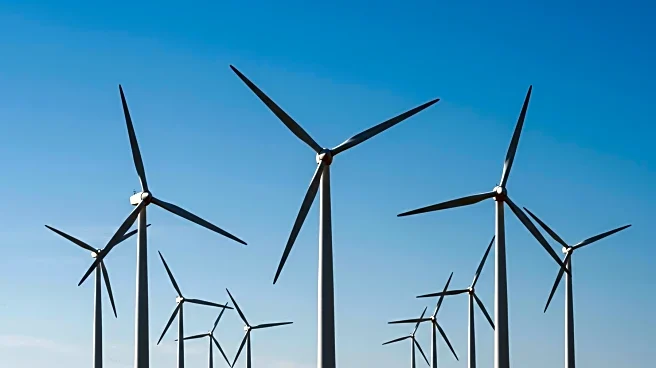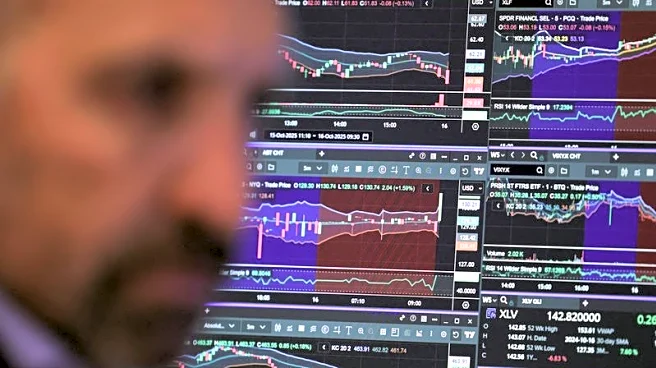What is the story about?
What's Happening?
The U.S. Department of Commerce has launched an investigation into the national security implications of importing wind turbines and their components. This probe, initiated under section 232 of the Trade Expansion Act of 1962, allows the president to impose import restrictions based on national security grounds. The investigation began on August 13, and public comments will be accepted for 15 days following its publication in the Federal Register. Analysts anticipate that the Commerce Department will expedite the investigation and potentially impose tariffs ranging from 25% to 50%, consistent with other duties imposed by the current administration. This move is part of President Trump's broader campaign against wind-powered electricity generation, which has included repealing clean energy tax credits and revoking permits for wind farms.
Why It's Important?
The investigation could significantly impact the U.S. wind energy sector by increasing the cost of wind turbine components, which were valued at $2.83 billion in imports last year. The potential tariffs could raise the levelized cost of energy for onshore wind projects, affecting utilities and developers already facing rising costs. For instance, Dominion Energy's Coastal Virginia Offshore Wind project could see a cost increase of approximately $506 million due to tariffs. The probe also highlights concerns about the concentration of U.S. imports from a limited number of foreign suppliers and the risks associated with foreign government subsidies and trade practices. The outcome of this investigation could influence the future of renewable energy projects in the U.S.
What's Next?
The Commerce Department will review public comments and assess the national security risks associated with wind turbine imports. Depending on the findings, the department may recommend imposing tariffs or other trade restrictions. Stakeholders in the wind energy sector, including utilities and developers, will likely respond to the investigation's outcomes, potentially adjusting their project plans and financial forecasts. The broader implications for U.S. energy policy and international trade relations will also be closely monitored.
















